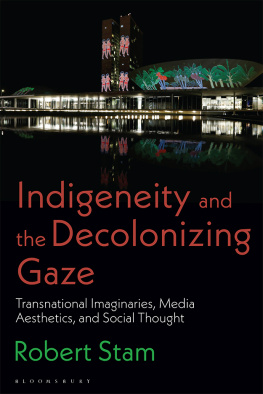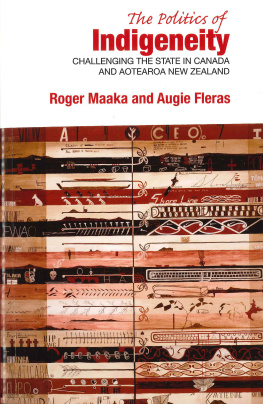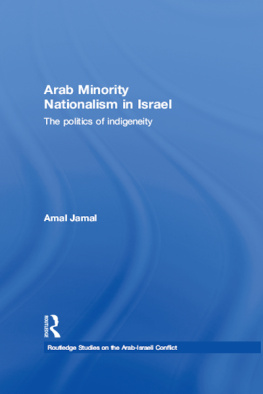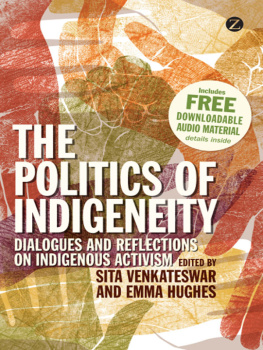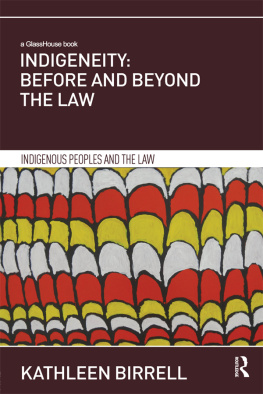Customizing Indigeneity
Paths to a Visionary Politics in Peru
Shane Greene
Stanford University Press
Stanford, California
2009 by the Board of Trustees of the Leland Stanford Junior University. All rights reserved.
No part of this book may be reproduced or transmitted in any form or by any means, electronic or mechanical, including photocopying and recording, or in any information storage or retrieval system without the prior written permission of Stanford University Press.
Printed in the United States of America on acid-free, archival-quality paper
Library of Congress Cataloging-in-Publication Data
Greene, Shane, 1971
Customizing indigeneity : paths to a visionary politics in Peru / Shane Greene. p. cm.
Includes bibliographical references and index.
9780804771283
1. Aguaruna IndiansPolitics and government. 2. Aguaruna IndiansEthnic identity. 3. Indians of South AmericaPeruPolitics and government. 4. Indians of South AmericaPeruEthnic identity. I. Title.
F3430.1.A35G74 2009
985.01dc22
2008050865
Typeset by Bruce Lundquist in 10/14 Minion
For Adolfo, who taught me much of
what I know. And Samik, who might
want to know it too someday.
Acronyms
AIDESEP (Asociacin Intertnica de Desarrollo de la Selva Peruana)
CAAAP (Centro de Antropologa y Aplicacin Prctica de la Amazona Peruana)
CAH (Consejo Aguaruna Huambisa)
CART (Central Ashaninka del Ro Tambo)
CCP (Confederacin Campesina del Per)
CECONSEC (Central de Comunidades Nativas de la Selva Central)
CIPA (Centro de Investigaciones y Promocin Amaznica)
CISA (Consejo Indio Sudamrica)
CNA (Confederacin Nacional Agraria)
COCONASEP (Comit de Coordinacin de Comunidades Nativas de la Selva Peruana)
COICA (Coordinadora de Organizaciones Indgenas de la Cuenca Amaznica)
CONACAMI (Coordinadora Nacional de Comunidades Afectadas por la Minera)
CONAM (Consejo Nacional del Ambiente)
CONAP (Confederacin de Nacionalidades Amaznicas del Per)
CONOAP (Consejo de Comunidades Nativas Nomatsguenga y Ashninka de Pangoa)
COPPIP (Coordinadora Permanente de los Pueblos Indgenas del Peru)
FAD (Federacin de Comunidades Aguarunas del Domingusa)
FECOHRSA (Federacin de Comunidades Huambisas del Ro)
FECONADIC (Federacin de Comunidades Nativas del Distrito de Cahuapanas)
FECONARIN (Federacin de Comunidades Nativas Aguarunas del Ro Nieva)
FECONAU (Federacin de Comunidades Nativas del Ucayali)
FECONAYA (Federacin de Comunidades Nativas Yanesha)
FECONAYY (Federacin de Comunidades Nativas Yine Yami)
FEDECOCA (Federacin de Comunidades Nativas Cocama-Cocamilla)
FEMAAM (Federacin de Mujeres Aguarunas del Alto Maraon)
FENAMAD (Federacion Nativa del Ro Madre de Dios)
FENARA (Federacin Nativa Awajun del Ro Apaga)
FERIAM (Federacin Regional Indgena del Alto Mayo)
FORMABIAP (Formacin de Maestros Bilingues de la Amazonia Peruana)
Grupo DAM (Desarrollo del Alto Maraon)
ICBG (International Cooperative Biodiversity Group)
IMF (International Monetary Fund)
IWGIA (International Work Group on Indigenous Affairs)
JAARS (Jungle Aviation and Radio Service)
MRTA (Movimiento Revolucionario Tupac Amaru)
NIH (National Institutes of Health)
OAAM (Organizacin Aguaruna Alto Mayo)
OCCAAM (Organizacin Central de Comunidades Aguarunas del Alto Maraon)
ODECINAC (Organizacin de Desarrollo de las Comunidades Indgenas Numpatkaim y Alto Comaina)
ODECOFROC (Organizacin de Desarrollo de las Comunidades Fronterizas del Cenepa)
ONAPAA (Organizacin Nativa Aguaruna de la Provincia de Alto Amazonas)
ORASI (Organizacin Regional Aguaruna de San Ignacio)
ORIAM (Organizacin Regional Indgena del Alto Mayo)
PETT (Proyecto Especial de Titulacin de Tierras)
SIL (Summer Institute of Linguistics)
SINAMOS (Sistema Nacional de Apoyo a la Movilizacin Social)
WBT (Wycliffe Bible Translators, Inc.)
Acknowledgments
I now realize there is a reason for writing the acknowledgments section last. The paranoia created by the idea of leaving someone off the list is overwhelming. So, if you should have appeared here and didnt, I beg for your forgiveness.
Mentors, colleagues, and co-conspirators from the University of Chicago are at the top of the list: Jean and John Comaroff, Manuela Carneiro da Cunha, John Kelly, and Terry Turner were all an inspiration at multiple points. Theres also little chance I could have found my way in (or back out of) the University of Chicago without the help of John MacAloon and the MAPSS program; and no anthropologist could get anywhere without Anne Chien. Among the many memorable friends and colleagues at Chicago, the following all had a hand in shaping my thinking about life as an anthropologist, whether they realize it or not: Paul Liffman, Jessica Jerome, Kathleen Lowrey, Michael Cepek, Jeff Martin, Alex Dent, Alan Durston, and Joshua Kaplan.
Beyond Chicago a number of people have actively contributed to providing intellectual feedback on this project or just the occasional memorable words of wisdom about academic life in general: Mara Elena Garca, Jose Antonio Lucero, Michael Brown, Laura Graham, Jean Rahier, and Jean Jackson are certainly among them. So, too, are Quetzil Castaeda, Anya Royce, Rick Wilk, Eduardo Brondizio, and Jeff Gould, all at Indiana University.
A number of people in Peru were indispensable in making my work there possible and more enjoyable. Id like to recognize the frequent help of Richard Chase Smith, Carlos Mora Bernasconi, Gisela Cnepa-Koch, Raul Romero, James (Jaime) Regan, and Marcos Cueto in particular. Life simply would not have been the same in Moyobamba without the constant laughter and discussion with Patricio Zanabria, Helene Collongues, Carlos Palomino, and the absolutely unyielding generosity of Jos Carmona, Bertha Tulumba, and their two kids (Eberth and Lisseth)oh, and of course, the famous To Pachuro (Heribert Schlebbe).
There are so many people who helped me forge my path through Aguarunia worth mentioning here it boggles the mind. But I can never forget the support and guidance provided by the following individuals over the years: Adolfo Juep, Csar Sarasara, Jorge Sarasara, Abel Chumap, Ricardo Apan, Jos Lirio, Evaristo Nugkuag, Gil Inoach, Albertina Nanchijam, Celestina Cahuaza, No Cahuaza, Elias Peas, Martn Retegui, Eduardo Gomez, Romn Tsamajain, Pijuch and Chimpa (who need no last name), Kjersti Juep, Vossler Juep, Victor Juep, Nestor Juep, Francisco Shajian, David Caicharo, and Jaime Pijuch. Ive also had a number of memorable contacts with Aguaruna university students in Lima over the years, all eager to exchange ideas. I remember especially conversations with Digenes Ampam, Anfiloquio Paz, Fermn Tiwi, Abel Uwarai, and Isaac Paz (special thanks to Abel and Isaac for first introducing me to the complexity of the Aguaruna language). It is with extraordinary sadness that I must thank the following persons for all they did for me perhaps long after I should have, indeed after they have departed from this world and found their path to the next: Majik, Henning Juep, Pablo Bazn, Jeremias Juep, Zacarias Chuncho, and Jos Catip.


